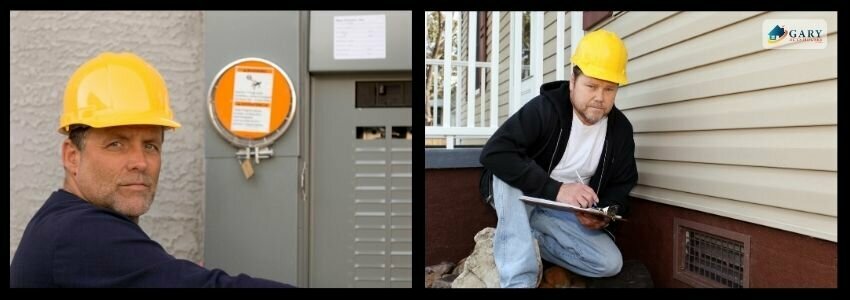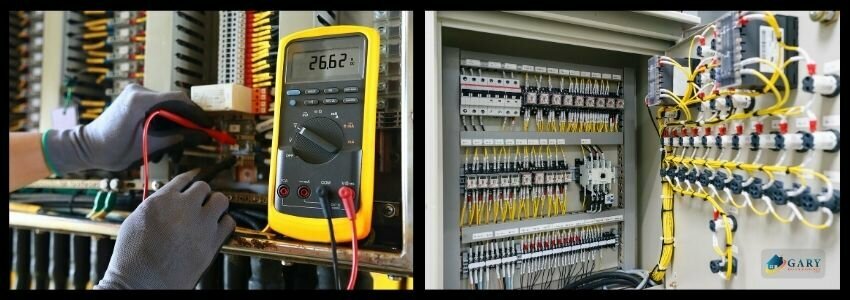If you’re getting ready to sell your home, the last thing you want to worry about are things like electrical issues coming up in the home inspection that could delay or impact the selling process. While not as common as other issues that might come up on an inspection, electrical problems, especially in older homes, can cause delay issues for home sellers. If your home has had wiring issues, or an old electrical service panel, you might want to consider these 5 things you need to know before selling a home with electrical issues.
Selling a House with Electrical Issues
What Electrical Upgrades Might Your House Need?
If you are hoping to sell your home for the best selling price possible it’s important that a seller sees your home as up-to-date for this technology driven era (i.e. lots of outlets!), and without any electrical issues that make an older beautiful home look like an old electrical headache.
Here are some electrical upgrades your house might need to bring in a traditional buyer and a good sales price:
- Update Wiring Systems
- If you are aware that your home has old wiring systems, such as knob and tube and aluminum wiring (which, by the way, is a leading cause of home fires), you will not draw in many buyers. This type of wiring also is a problem for getting good homeowners insurance and will turn away a traditional buyer. For safety reasons and to keep up with the load that our modern electronics need, your entire home would need to be rewired with solid copper wire and adequate grounding.
- Old Electrical Service
- Your home should be wired to take in 200-amps, not the outdated 60-amps that older homes used. 60-amps isn’t enough to support the amount of fixtures, appliances and outlet needs a family uses.
- 3-Prong Outlets are Necessary
- No amount of charm in your older home can have a home buyer overlooking 2-prong outlets all over the place. In the digital age we live in a 3-prong outlet is a must for usability and to be properly grounded for safety.
- Need More Outlets
- Older homes are often equipped with one outlet in a bed room, but todays home buyer will be looking for multiple outlets in each room and conveniently located as well.
- Problematic Circuit Breaker Panel
- All the wiring in your house should run through your circuit breaker panel. Having an up-to-date panel with all of the parts in functioning order is a must for selling your house. If you are dealing with an outdated bulb style panel, recalled panel, or undersized panel these are all issues that should be addressed before listing your home.
- GFCIs
- Any outlet in a bathroom, kitchen, garage, basement or other wet location needs to be GFCI equipped to prevent the risk of electric shock. These devices monitor the electrical current and will cut it off if an imbalance is detected. If you aren’t sure if your home is GFCI equipped or you’ve run into some of the issues listed above then you might want to consider having an electrical home inspection done before selling your house.
What is an Electrical Home Inspection

Electrical inspections are sometimes requested by lenders when refinancing your home and can be requested during a home inspection if problems with the electrical system of your home show up. You should consider having an electrical home inspection done if your home is 40 years old or older, your house has undergone a major renovation or you’ve added major new appliances in the last 10 years. A simple google search will bring up licensed electricians or electrical contractors near you that can perform these type of inspections. An electrician will check all the outlets in your home and go over your electrical panel and wiring. They use special tools to determine amps and safety, giving you a thorough report of what might need to be upgraded or repaired in order to sell your home for your asking price.
Cost of an Electrical Inspection
The actual cost of an inspection will vary depending on the size of your house, the contractor you use and whether you the seller, the buyer, a lender or insurance company request the inspection. A general price estimate to plan for would be anywhere from $150 to $200, not including the cost of any upgrades or repairs that they recommend you make to your electrical system.
What Electrical Problems Can Make or Break Your Ability to Sell Your Home
While some problems are an easier fix, other electrical issues can hold up the house selling process or leave you without any buyers. Electrical problems often scare off buyers as they are linked with thousands of electrical fires each year. If you were to rewire a 1,200 sq. ft. home it can average over $10,000 while simpler problems like frayed wiring and faulty light switches cost the hourly rate of an electrician near you at a more manageable $65-$85 per hour. If you have inherited an older home, or live in an older home, you might be looking at costly electrical repairs before you can sell the home.
Why Buyers Should Ask Sellers About Replacing the Wiring Systems in Older Homes
When it comes to purchasing an older home, there are several considerations that go beyond the charm and character of these properties. One crucial aspect often overlooked is the state of the electrical wiring system. Understanding whether the wiring has been updated is not only a matter of safety but can also impact your decision-making process. Here’s why buyers should ask sellers of older homes about the condition of their wiring systems:
1. Safety Concerns
According to one of my electricians John Anderson, a licensed electrician with 20 years of experience, “Older homes may have outdated wiring systems that pose significant safety risks. Asking about wiring upgrades is a critical step in ensuring the safety of your family and the property.”
2. Compliance with Current Codes
Older homes often have electrical systems that don’t meet today’s building codes. Upgrading the wiring may be necessary to bring the home into compliance with local regulations.
3. Electrical Capacity
Old wiring systems may not have the capacity to support modern electrical demands. This can lead to overloaded circuits, tripped breakers, and the need for additional electrical work.
4. Outdated Materials
Wiring materials used in older homes, such as knob-and-tube wiring or aluminum wiring, are no longer considered safe or efficient. Replacing these materials with modern, copper wiring is essential.
5. Fire Hazards
Faulty or deteriorating wiring can pose a significant fire hazard. In fact, electrical problems are a leading cause of house fires in older homes.
Major Differences in Old Electrical Systems vs. Newer Modern Homes
When considering the electrical systems in older homes versus newer modern properties, several key differences emerge:
- Knob-and-Tube Wiring: Many older homes feature knob-and-tube wiring, which lacks the safety features and grounding found in modern systems.
- Amperage Capacity: Older homes often have lower amperage capacity, meaning they may not be equipped to handle the electrical demands of modern appliances and technology.
- Outdated Outlets: Older homes may have fewer outlets, and these outlets may not be grounded or have GFCI protection, both of which are standard in newer homes.
- Aluminum Wiring: Homes built in the mid-20th century may have aluminum wiring, which is more prone to corrosion and overheating than modern copper wiring.
- Circuit Breakers vs. Fuses: Older homes may still use fuses, which are less convenient and safe than circuit breakers found in modern homes.
- Wiring Insulation: The insulation on older wiring can deteriorate over time, increasing the risk of electrical problems and fires.
As a buyer, it’s essential to be aware of these differences and ask the seller about any electrical upgrades or renovations. In some cases, you may want to consider including an inspection of the electrical system as a contingency in your purchase agreement to ensure your new home is not only charming but safe and up-to-date.
Selling a House to a Cash Buyer
Oftentimes these types of expensive repairs can be prohibitive to selling a home. If you don’t have the cash to make the repairs up front before selling then you might not get any interested buyers willing to take on the problem, even with a lower selling price. If you are in this situation you should consider reaching out to us, your trusted Utah house buying company to get an honest and fast quote.
We buy houses in as-is condition and regularly work with contractors and electricians to bring houses up to code and in proper working order. We are willing to take on the risk and purchase the property from you outright. Whether you inherited an older home or you live in a home that has outdated electrical problems, you can trust that a we will give you a fair quote and cash offer allowing you to sell your home without any further problems.

